Sanitary pads were not easily available, so these girls and boys started making cloth pads at home
During the lockdown, when only a few shops were open, the stocks of sanitary pads had flown off the shelves. An initiative to make cloth sanitary pads was launched by Vatsalya and was a big success

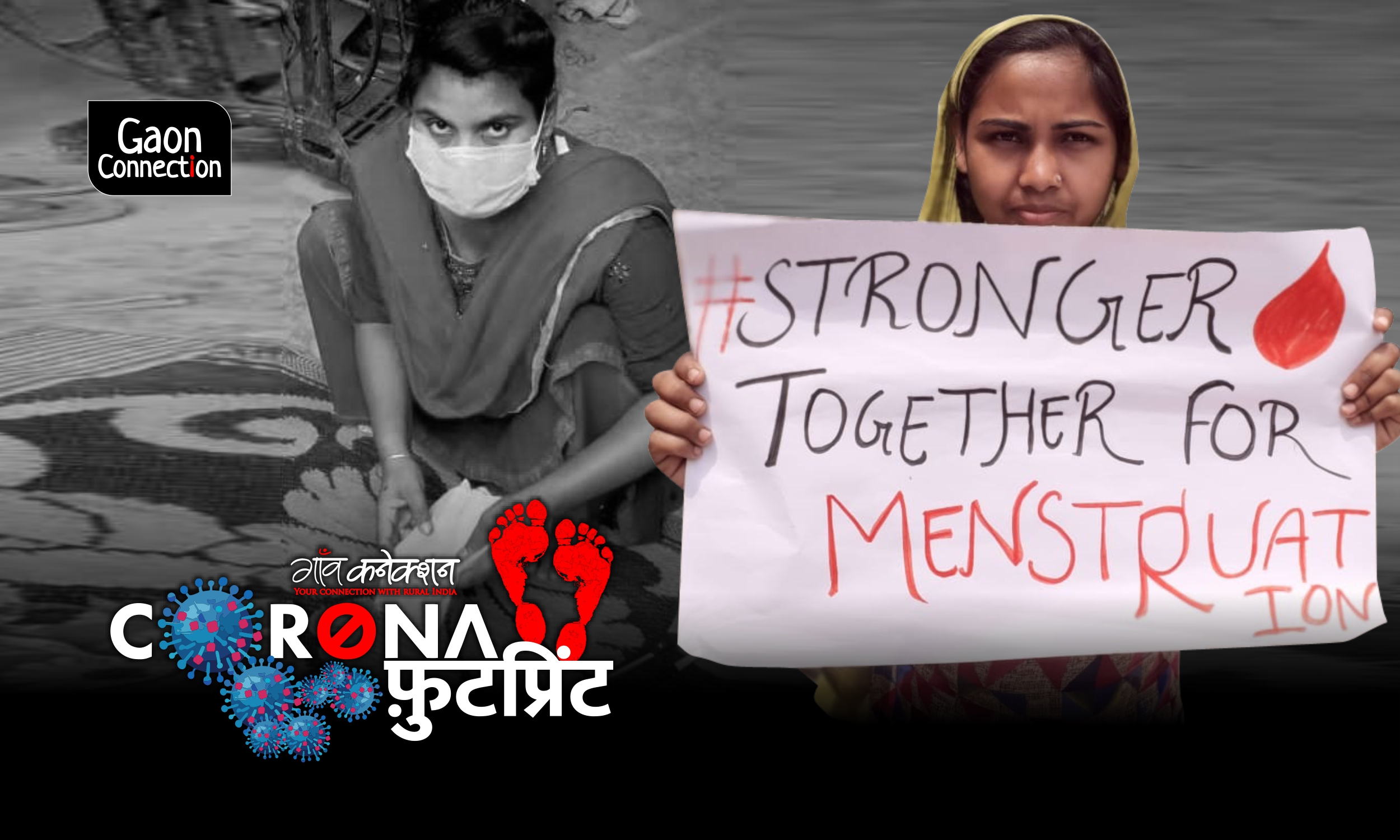
During the lockdown, Sachin Gupta, 17, a resident of Digurpur village in Bakshi Ka Talab block in Lucknow, went out to buy a sanitary pad for his sister. But he couldn’t get it in the shops near his house. So, he started making sanitary pads at home. He was later joined by his sisters.
Sachin said: “Sanitary pads were not available at the nearby shops. I could not go to the market. So, I teamed up with my sisters and we started making cloth pads at home.” He also spoke to many of his friends and asked them to help their sisters out. Inspired by him, many have now started doing this.
When asked if it’s not awkward for him to make pads, he said: “Not at all. I have been associated with the Vatsalya organisation for two years. Initially, there was a lot of hesitation, but now I openly talk about menstruation. I also tell my friends to help their sisters out when they are menstruating, and to understand their suffering.”
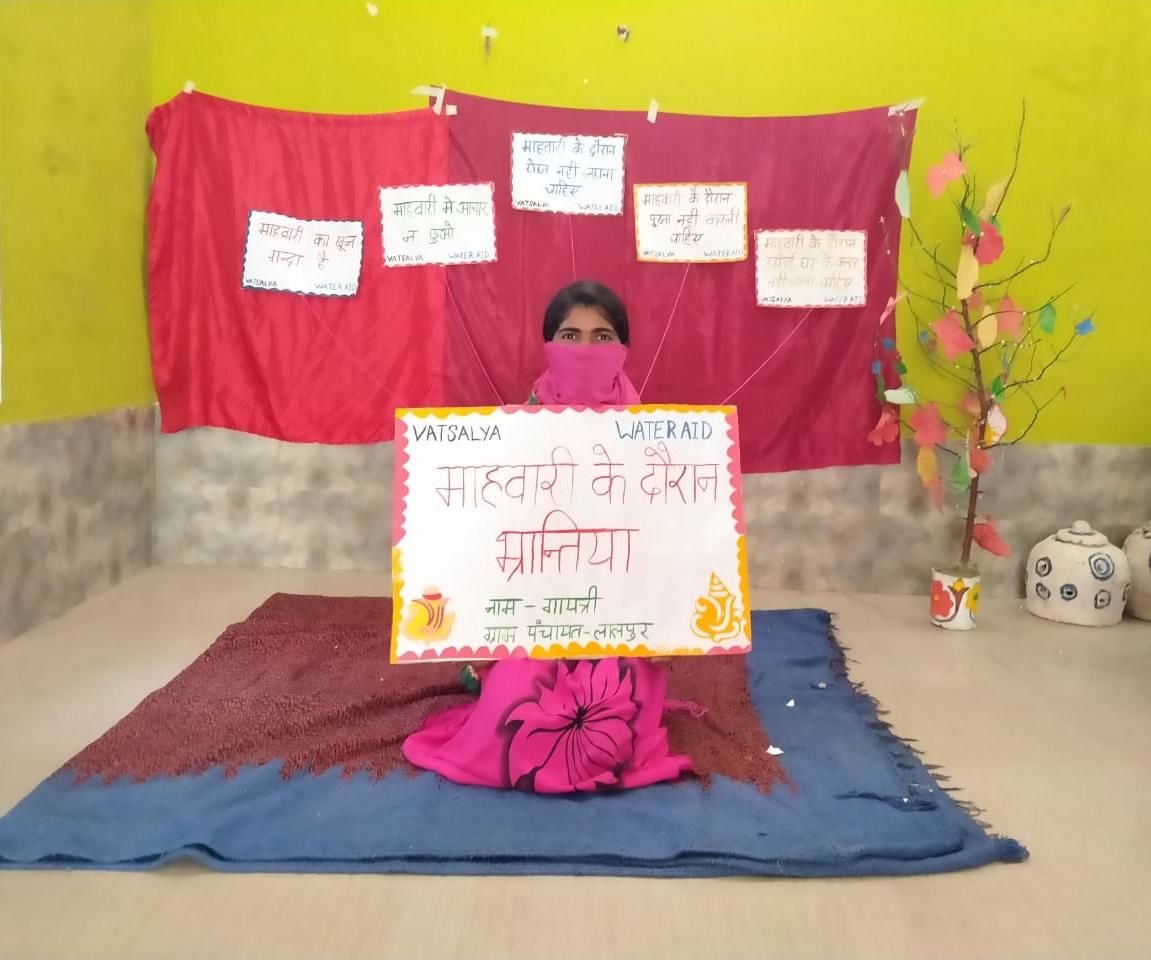
During the lockdown, many youngsters, like Sachin, have come forward to participate in the discussion on a critical but taboo subject like menstruation. They are openly talking about the availability of sanitary pads and their disposal, which is a heartening change.
During the countrywide lockdown, when the markets were completely closed, and only a handful of shops were open, the stock of sanitary pads had flown off the shelves. So, an initiative to make cloth sanitary pads was launched by Vatsalya, an associate concern of WaterAid, for girls and women. More than 200 girls had participated in the initiative of making the cloth pads, along with some boys like Sachin.
Like Sachin, Sarita Devi, 26, too saw a video and began stitching sanitary pad made of cloth at home. During the lockdown, Sarita also taught many girls in her neighbourhood to make sanitary pads.
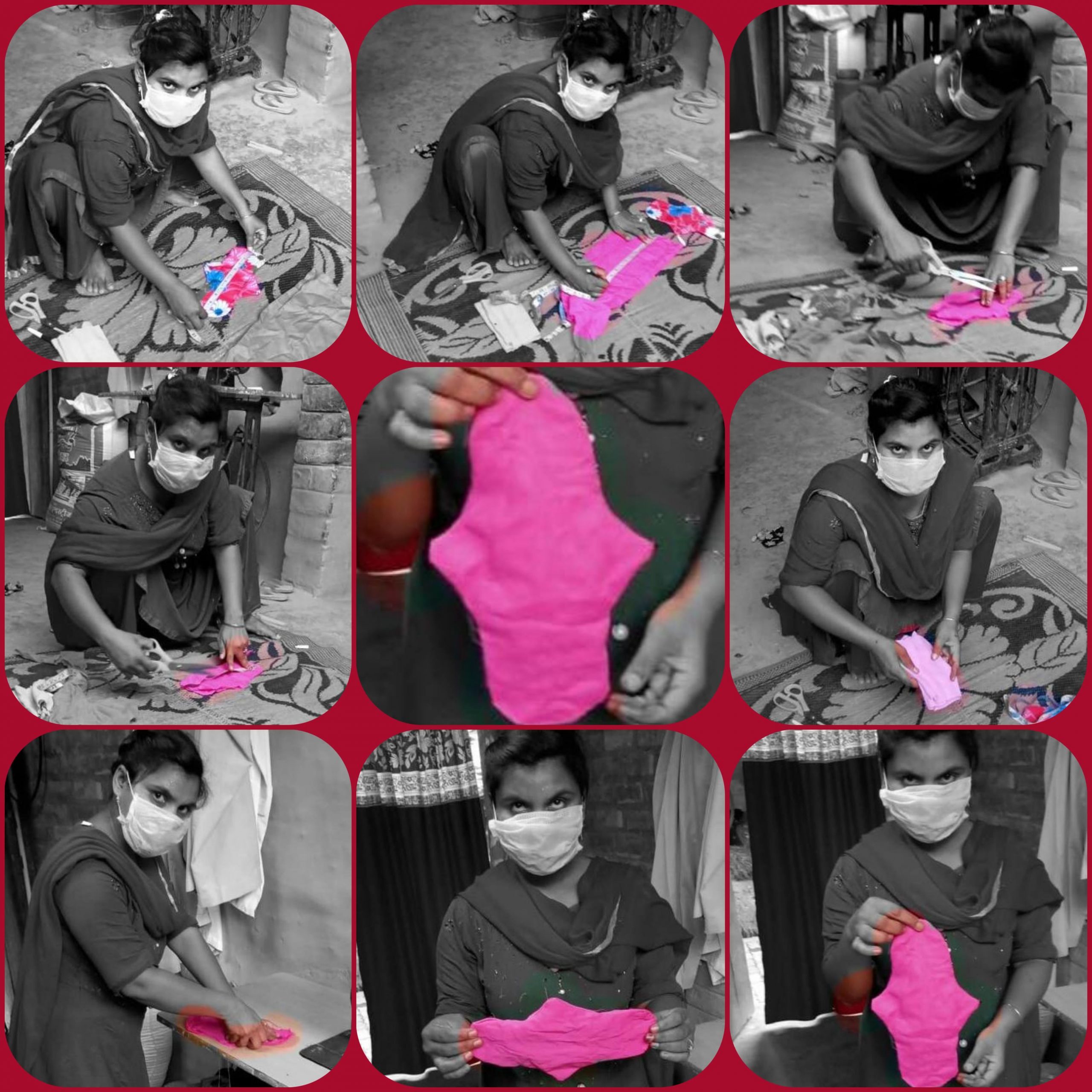
Sarita lives in Mujasa village in Malihabad block, about 30 kms away from Lucknow. She said: “I was sent a video by Vatsalya on WhatsApp which showed a complete method of making cloth sanitary pads. I had known sewing in advance so it was easy for me to make it. Now many girls have learnt to make it too. All of them used cloth pad during the lockdown. Some girls also began buying these pads from me. So far, I have sold more than 200 pads.”
Sarita is not the first girl to make and use a cloth pad during the lockdown. Like Sarita, more than 200 girls are using it in Lucknow. Sarita is also selling sanitary pads made of cloth for Rs 5 each to the girls living near her. The making of sanitary pads of cloth was described through a video floated by WaterAid partner, Vatsalya, which proved to be quite effective.
During the lockdown, a survey was conducted by WaterAid through 39 non-governmental organisations in Bihar and Uttar Pradesh on the availability and challenges of buying essential commodities. Sixty-five per cent girls and women said that they were using sanitary pads made of cloth due to the unavailability of commercial sanitary pads in the market.
Anjali Tripathi, the programme manager of WaterAid in Uttar Pradesh, said: “At the time of the lockdown, when girls and women were not getting sanitary pads at the shops, WaterAid had conducted a survey. At the same time, an intensive 10-day campaign on menstrual hygiene was launched in collaboration with the associate institutions in which the girls focused on making sanitary pads of cloth and their disposal. In Lucknow, more than 200 girls are making it too.”
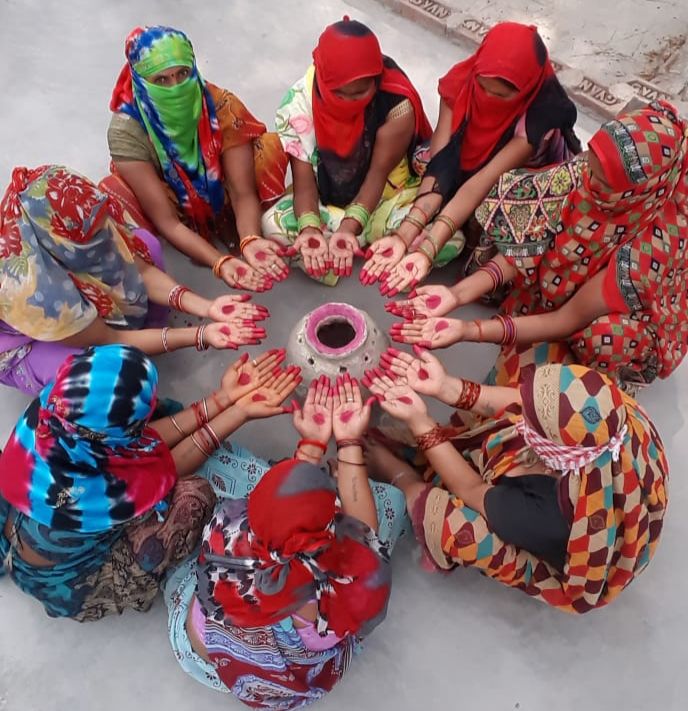
The 10-day campaign on menstrual hygiene management also carried out a number of interesting activities. Alta and henna were used to openly to discuss menstruation which stressed the importance of vocalising the issues of menstruation. WaterAid works in 32 countries on water, toilets and sanitation issues. They work in 11 states of India and in five districts of Uttar Pradesh — Fatehpur, Unnao, Chitrakoot, Bhadohi and Lucknow — with six affiliates (the German Development Services in Unnao, Vatsalya and Science Foundation in Lucknow, the Sarthi Development Foundation in Fatehpur, Abhiyan in Chitrakoot, the Gorakhpur Environment Services for Bhadohi).
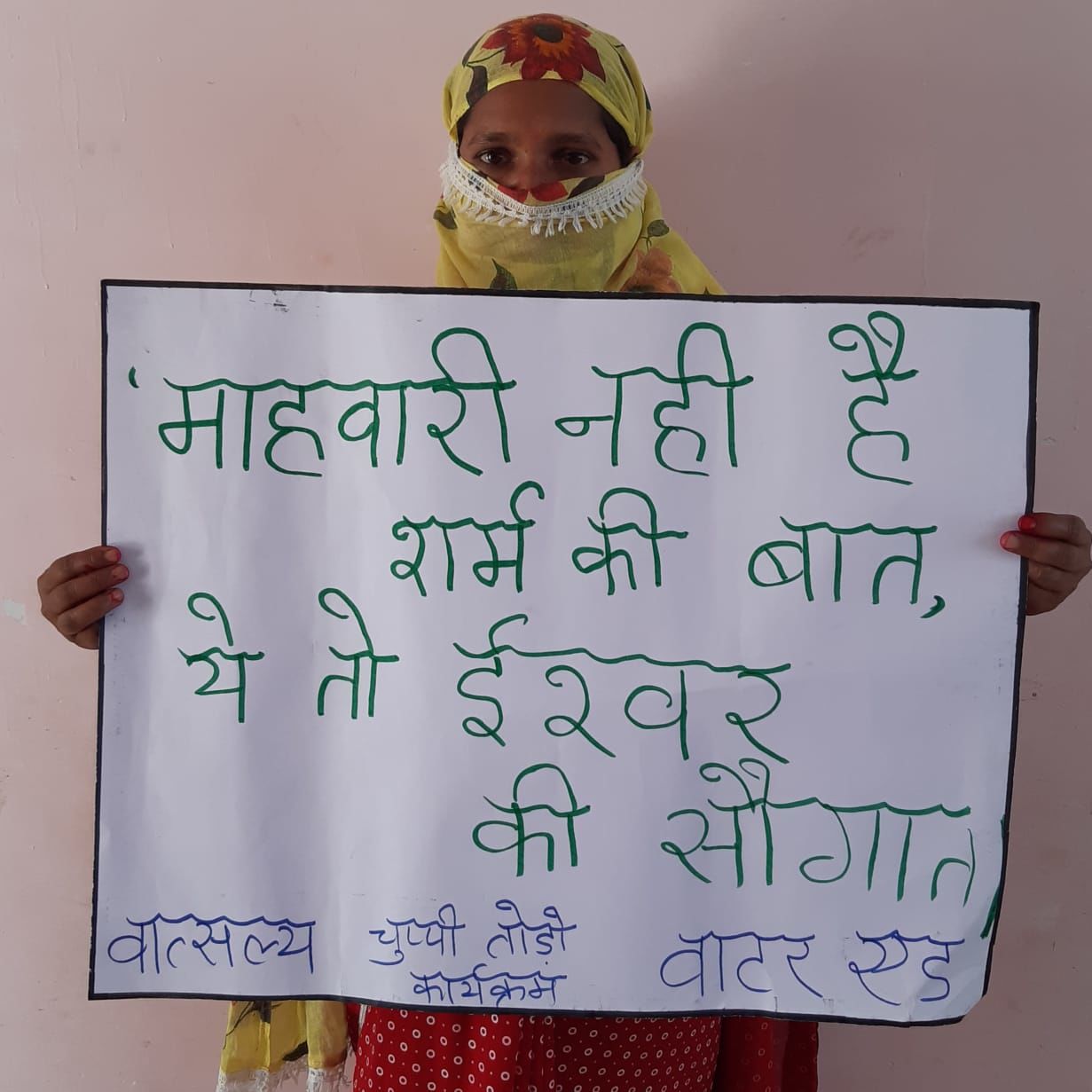
In April, a survey was conducted by the Menstrual Health Alliance India (MHAAI), supported by WaterAid India and Development Solution, among institutions associated with menstrual hygiene awareness and products. The survey was attended by 67 institutions from India and abroad. The survey revealed that with the onset of COVID-19, 67 per cent of the institutions had stopped their general working on menstrual hygiene awareness and products. The MHAAI is a network of NGOs, researchers, manufacturers and practitioners working in menstrual health and hygiene in India.
Dr Neelam Singh from the Vatsalya institution, said: “When the pads were not found in the lockdown, the girls took it as an opportunity. They reduced their dependence on the market and started making cloth pads at home. The good thing is that the boys had also participated in it. Whenever we do a menstrual activity in the community, we also include men of all ages to strengthen their understanding of the subject.”
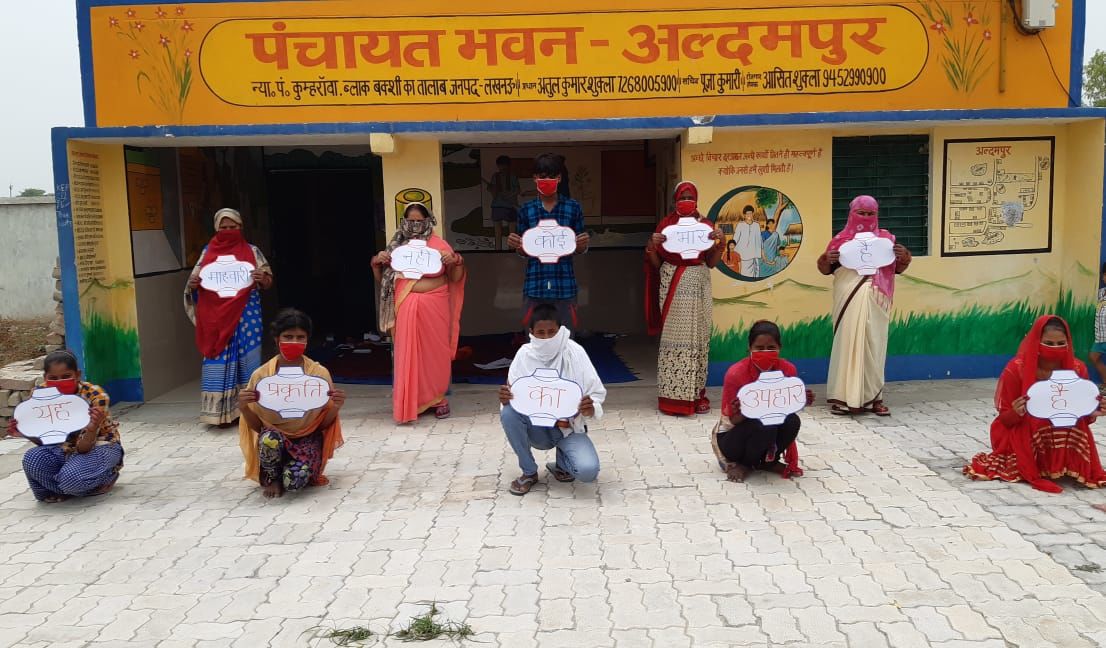
Vatsalya works for menstrual and hygiene management in 300 villages of Lucknow. There is a continuous dialogue and discussion on the subject among nearly 12,000 people, including men. Work on menstrual health is also going on in 150 upper primary schools in Lucknow, with teachers and children.
‘Vatsalya’, a non-governmental body works for the health of women and adolescent girls in hundreds of villages in eight blocks of Lucknow. In 2016, the institution conducted a survey among 450 girl students (11 to 18 years) of 80 schools in eight blocks of Lucknow. In the survey 93 per cent of the girl students had told that during menstruation, they do not go to the temple, the church or gurudwara. 84.7 per cent said they considered menstruation to be dirty. One in every three teenagers that is only 33 per cent of adolescent girls, are able to go to school these days.

